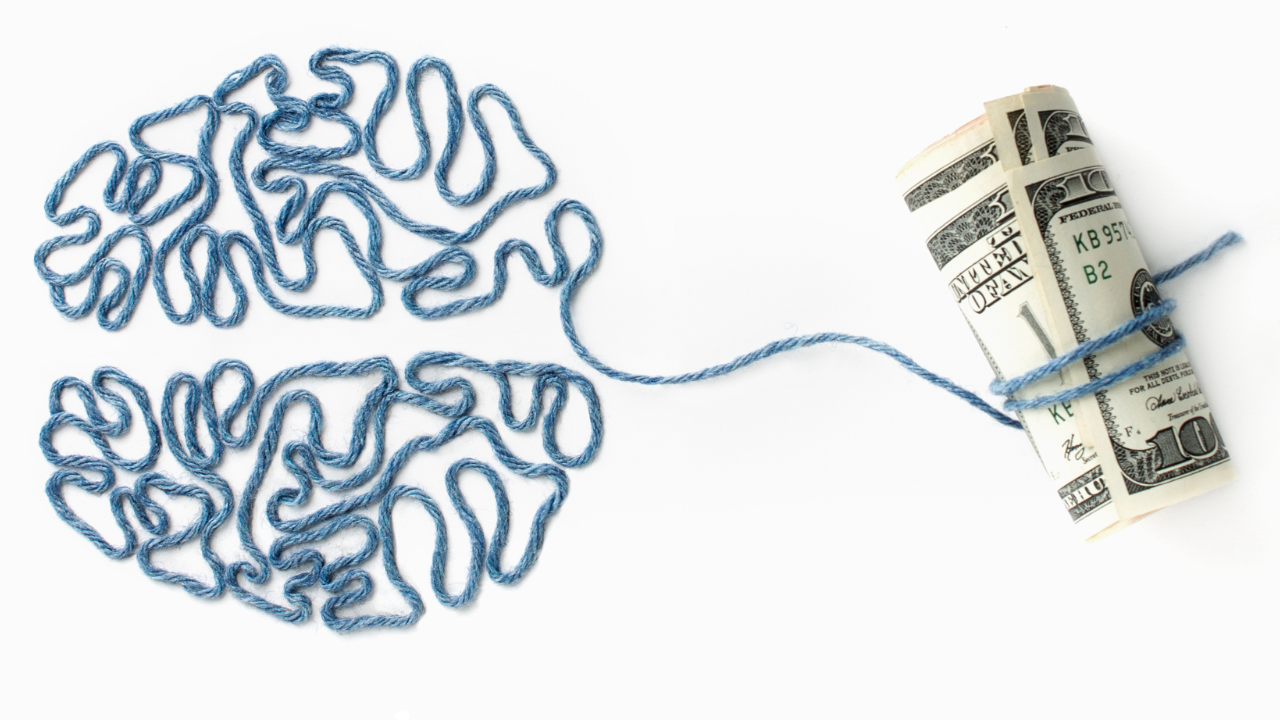Scarcity vs. Deficiency: The Hidden Layers of Your Money Mindset
Jul 04, 2025
If you're reading this, then I'm going to assume that you're no stranger to personal development and money mindset work.
Some people feel guilty for having too much while others struggle with not having enough.
Money mindset is complicated and one thing's for certain: you're going to feel some kind of way about it!
It can be really frustrating when you feel like you've done all the money mindset work and still feel stuck.
You've cleared your blocks, visualized abundance, made peace with your finance and still don't see much difference.
So, what's it going to take to dial up your money mojo?
I want to share a powerful shift in perspective about why some people—despite doing all the “right” money mindset things still feel like they’re spinning their wheels. I
t has to do with two key concepts we rarely separate: scarcity and deficiency.
Let’s break them down.
Scarcity Is About Survival
When we talk about scarcity, most people think of not enough—not enough money, food, time, or resources.
This is what Maslow’s Hierarchy of Needs identifies as the foundational levels: physical and psychological safety.
If you’re constantly worried about paying your bills, feeding your family, or having a place to live, your brain isn’t interested in mindset work. It’s focused on survival.
But what happens when those basic needs are met, and you still don’t feel secure? That’s where the next level of the hierarchy comes in.
Deficiency Is About Self-Worth
After our physical and psychological safety needs are met, then we move up a level and begin to focus on love and belonging
Emotionally, we'll attach a certain significance to money and what it says about our personal value.
Instead of scarcity, we begin to feel deficient.
Although it may seem like it, scarcity and deficiency are not the same thing.
-
Scarcity is the fear of lack around physical things: food, money, shelter.
-
Deficiency is the fear of lack within yourself: your value, your worth, your place in the world.
Deficiency is the emotional undercurrent of thoughts like:
-
“I’m not enough.”
-
“I don’t deserve more.”
-
“What if I can’t handle success?”
These beliefs can show up in your bank account.
Your self-talk, your resistance to change, and the ceiling you keep hitting over and over is really a false belief that your work equals your worth.
Language Matters More Than You Think
One sneaky way deficiency shows up? Through words that seem similar but feel very different to your brain.
You might feel okay with the word money, but struggle emotionally when you hear luxury, wealth, or excess.
These are all processed differently by your subconscious even though your logical brain sees them as interchangeable.
Your subconscious will assign each word a different emotional definition. These definitions determine whether you'll work toward or against achieving your goals.
Here's a little exercise: Try saying each word and pay attention to your voice and any sensations in your body.
You may notice your voice changing in pitch, tone, or volume or feel a little clench of resistance in your body if your subconscious is "not ok" with the word you chose.
For example, a client once told me he was fine with the word money, but when he said more, his entire energy shifted. We had to explore why his brain was okay with money but not okay with the idea of having more.
That’s deficiency talking.
How to Spot a Deficiency Mindset
Deficiency often hides in places where logic doesn’t apply. You might:
-
Say, “I know I’m good at what I do,” but secretly fear people will find out you’re not.
-
Believe, “I was loved growing up,” but still feel like it wasn’t enough.
-
Tell yourself, “I should be past this,” but still feel stuck in emotional patterns.
Your emotional brain doesn’t care about what should make sense. It cares about what it believes is emotionally true even if it doesn't logically make sense.
So, What Can You Do?
Here’s the good news: These patterns aren’t permanent. They’re just programming and programming can be rewritten.
Through my Bespoke Brain System, I help clients:
-
Identify which of their three core brain systems (logical, emotional, or survival) is in charge
-
Untangle beliefs that are based in emotional reality vs. actual reality
-
Reset their nervous system with techniques tailored to their unique wiring
-
Get clear on what language, emotions, or past experiences might be quietly sabotaging their progress
The part of your brain that makes a goal isn't the part that helps you achieve it.
Having a deeper understanding of why your mindset tools aren’t sticking and what to do instead is key.
Try These Exercises:
- Ask yourself: Is this a scarcity issue… or a deficiency one?
- Say a few words aloud like “money,” “more,” “wealth,” “success,” or “luxury.” Pay close attention to how each one feels in your body.
Did you notice any resistance? If so, then there’s likely a belief behind it waiting to be uncovered.
Your Wiring Can Be Changed
If you haven’t cracked the code on money or mindset yet, no worries!
You might just be working with the wrong language, the wrong level of the brain, or the wrong kind of mindset tool for your system.
If you’d like personalized help unpacking this, I offer complimentary consultation calls where we explore exactly where your resistance is coming from and how to reset it.
🔗 Book your session at aprildarley.com
You’re allowed to feel safe, supported, and successful. Not just on the outside, but deep within yourself.
Let’s rewrite your reality together.

Dr. April Darley is a Lifestyle and Leadership Advisor who specializes in helping busy professionals achieve their goals without sacrificing their health, wealth, and freedom. Through a combination of techniques, you'll learn how to balance leadership and life while developing a growth mindset.
Freedom In Your Inbox!
Join our mailing list to receive weekly tips on how to balance leadership and life.
Don't worry, your information won't be shared and you can unsubscribe at any time.
